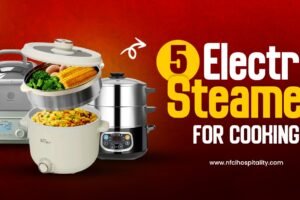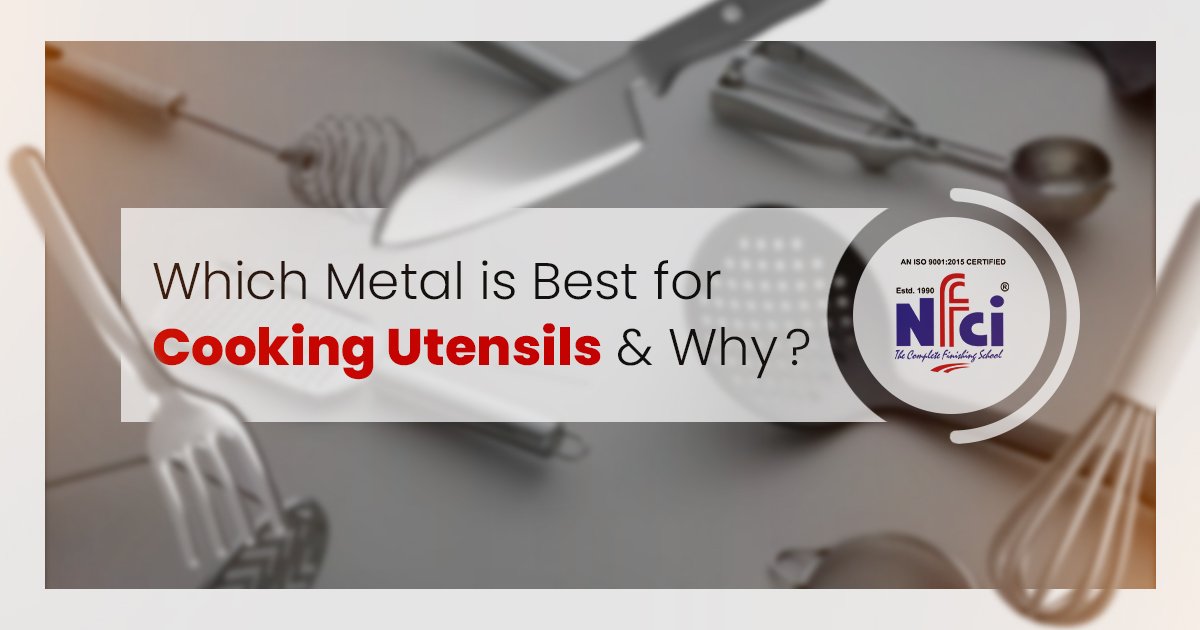
Which Metal is Best for Cooking Utensils and Why?
Different types of utensils are crafted from different metals with unique characteristics and advantages. Here metals like brass, copper, steel and bronze take the limelight for their Ayurvedic properties that are immensely healthy for our bodies.
With today’s generation being health conscious and concerned about their lifestyle choices, choosing the right cooking utensils is also a necessity to lead a healthy life.
Every metal has its unique properties that make it suitable for different kitchen tasks. Factors ranging from reactivity, heat conduction, durability and price help you decide which metal is best for your cooking purposes.
As a premier cooking institute in Chandigarh, Mohali, and Zirakpur, NFCI Hospitality emphasizes the importance of selecting the right cooking utensils for culinary success.
The Significance of Metal in Cookware Design
There are several key features present in metals that make them the ideal materials to be used for cookware designs. Some of them are as follows:
- Heat Conductivity: Metals like copper, stainless steel and aluminium are the best conductors of heat, allowing heat to spread evenly throughout the cookware’s surface. This further prevents hot spots that burn food. A good heat conducting metal means more consistent and healthy cooking.
- Durability: Metals are considered to be highly durable materials. They can very easily withstand excessive use and high temparatures. If invested properly, a good quality metal utensil can last for many years without losing its shape or getting degraded.
- Versatility: With the help of a variety of metals used in making different cookware, you can get versatility in your products and cooking performance. Metal like copper provides unparalleled responsiveness and control whereas stainless steel is known for providing durability and low reactivity. Metal combinations make the cookwares versatile for different cooking needs.
Let’s have a look on the best and most commonly used metals in cookware:
-
Copper Cooking Utensils:
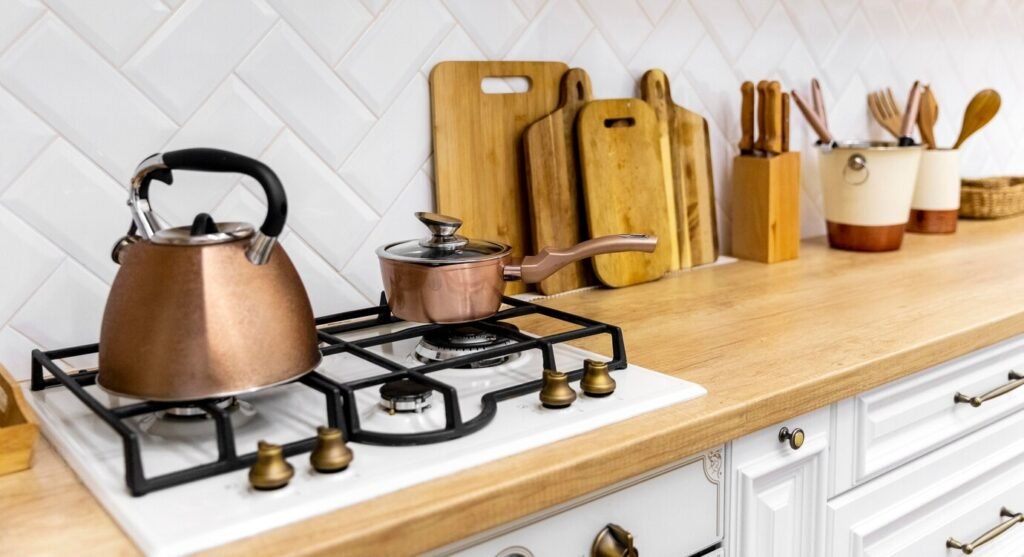
Copper is considered one of the best metals as it is renowned for being the best heat conductor, making it ideal for cooking. These utensils are 100% safe for cooking and have been a favorite choice since generations.
Benefits of Copper Cooking Vessels:
- Does wonders for gut health by boosting the metabolism and improving digestion
- Good for skin health as it detoxifies the body, purifies blood and helps improve hemoglobin count.
- People with regular complaints of cough and congestion also benefit from copper rich food as it contains collagen.
- Copper bottles are highly advised to store water in as they have antioxidant, antimicrobial, anti-inflammatory, and antibacterial properties.
2. Cast Iron Utensils:
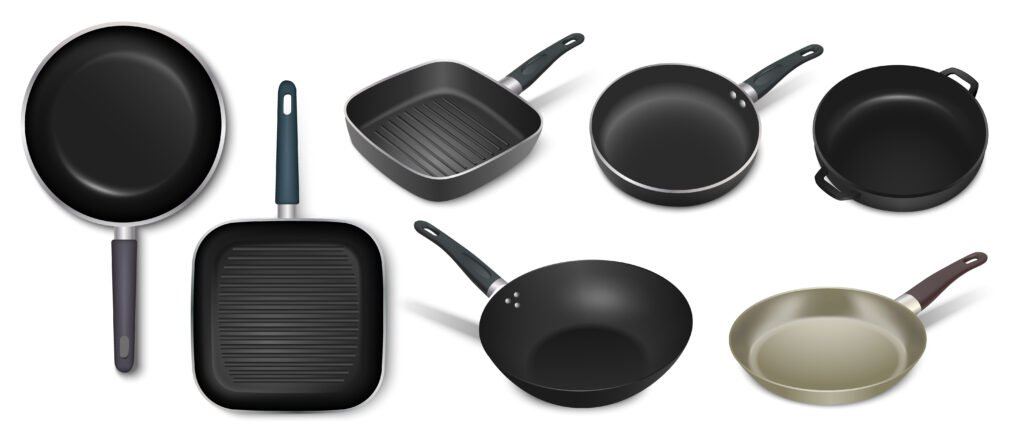
Cast Iron is an iron based alloy with a high carbon content, mostly between 2-5%. These alloy based utensils have been a kitchen favorite since centuries, due to their desirable properties.
Benefits of Cast Iron Vessels:
- Heat retaining abilities that make the utensils ideal for searing, frying, baking etc.
- If taken care of properly, cast iron utensils are durable enough to last generations.
- A small amount of dietary iron is transferred from the cookware to acidic foods during cooking.
3. Steel Utensils
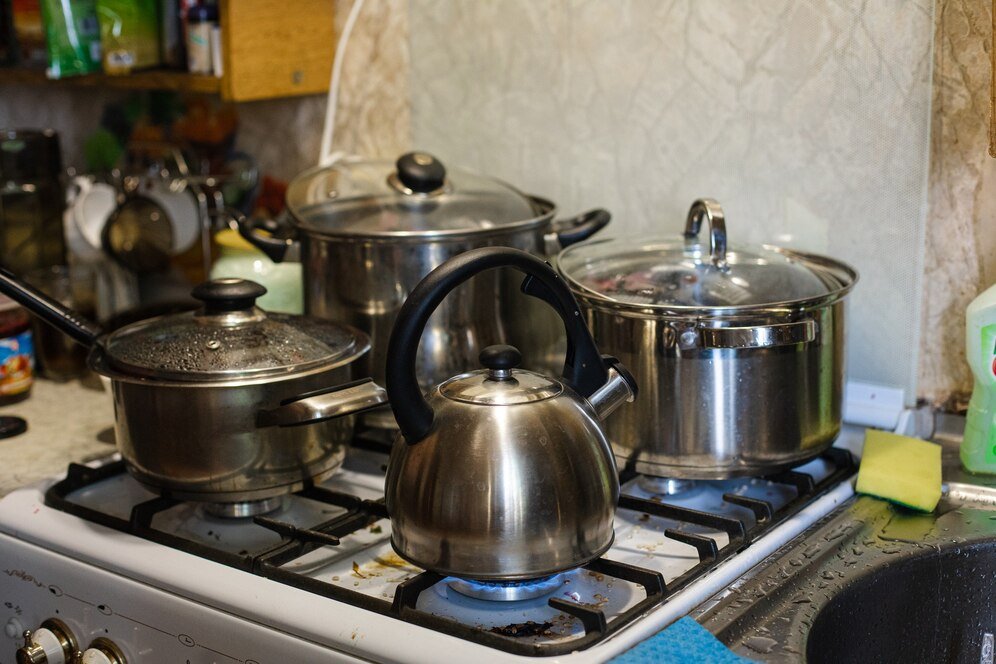 Steel Utensils is the most commonly used metal in kitchenware. Its safe, durable, hygienic and reliable along with non-reactive qualities. Any kind of food can be cooked in a stainless steel utensil.
Steel Utensils is the most commonly used metal in kitchenware. Its safe, durable, hygienic and reliable along with non-reactive qualities. Any kind of food can be cooked in a stainless steel utensil.
Benefits of Steel Vessels:
- It is corrosion resistant
- Can tolerate high temperatures, remain durable and sturdy.
- Non reactive and non toxic in nature, ideal for cooking acidic food.
- Resists chemical reactions to retain food nutrients.
- Easy to clean.
4. Aluminium Utensils:
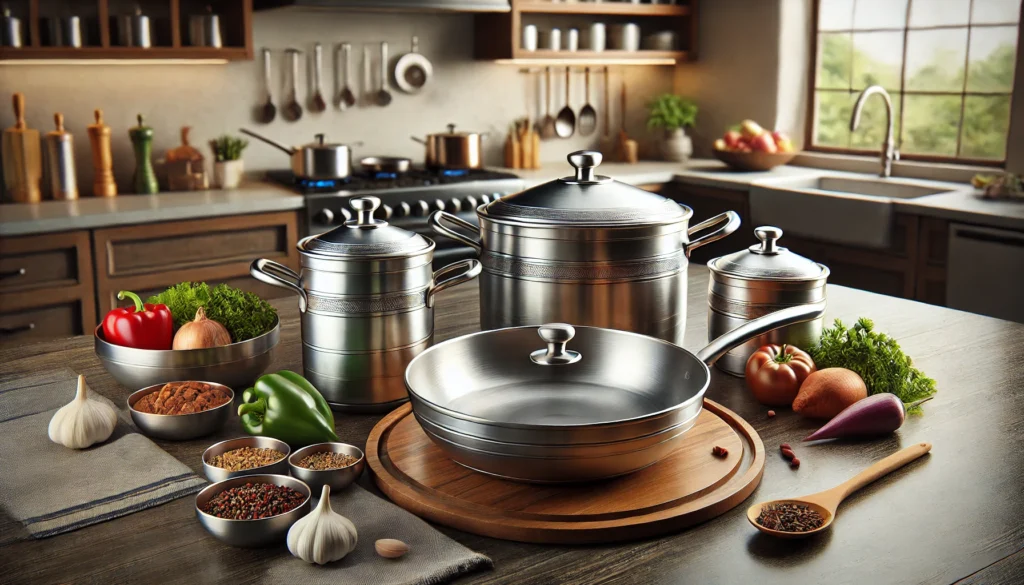
Affordable and lightweight, this metal conducts heat fairly well. But some foods can cause aluminium to get mixed with alkaline or acidic foods.
Benefits of Aluminium Vessels:
- This metal is more affordable in comparison to stainless steel and copper, making it easily accessible for more households.
- Modern day aluminium alloys that are used to make utensils are more durable for daily cooking as compared to low quality aluminium which can dent very easily.
- Pure aluminium has a lightweight property which makes the utensils easier to handle and maneuver while cooking. This property also makes these utensils ideal to carry while trekking or camping.
- They are excellent conductors of heat, which means that they can easily heat up very quickly, allowing the food to be cooked faster and thoroughly.
5. Brass Cooking Utensils:

Brass is an alloy metal made up of zinc and copper, both important minerals for an individual. Brass utensils are known for retaining nutrients that allow the food to not lose its nutritional value. Brass utensils have been a kitchen staple since generations.
Benefits of Brass Cooking Utensils:
- These utensils release melanin which is good for our hair health, skin and also protects us from UV radiation.
- Brass utensils also release zinc into our food which increases our hemoglobin count and purifies blood.
- Prevents serious abdominal infections.
- Storing water overnight in a brass utensil and consuming it the first thing in the morning also does wonders for your immunity.
The Verdict:
Stainless steel and cast iron are top choices for cookware. Stainless steel is resilient, non-reactive with food, and easy to clean. Cast iron, on the other hand, retains heat well and improves with use, developing a natural non-stick surface.
Tag:Aluminium Utensils, Benefits of Aluminium Vessels, Benefits of Brass Cooking Utensils, Benefits of Cast Iron Vessels, Benefits of Copper Cooking utensils, Benefits of Copper Cooking Vessels, Benefits of Steel Vessels, best cooking utensils for health, best material for cooking utensils, best metal cooking utensils, Brass Cooking Utensils, Cast Iron Utensils, Cooking Utensils, copper cooking utensils, metal cooking utensils, steel cooking utensils, Steel Utensils



